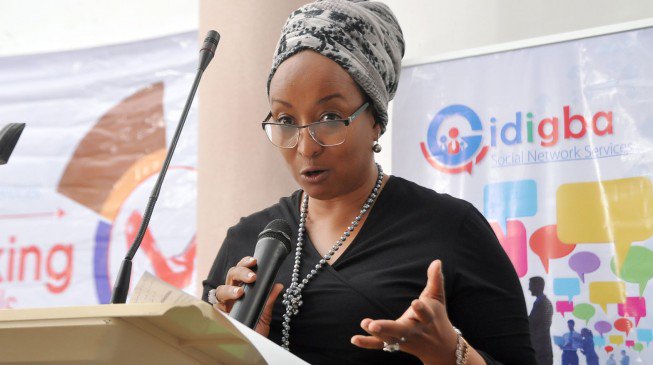The Special Adviser to the President on Social Investment, Maryam Uwais, has recommended a firm approach toward handling population growth in order to tackle poverty reduction successfully.
Uwais gave this recommendation while speaking at a three-day retreat for legal drafters, on relevant international and regional instruments on social protection in Lagos on Tuesday.
A firm approach, she said, was needed because “no government can plan effectively or have resources to provide quality education and healthcare for an unlimited number of citizens’’.
The retreat, which began on Monday, was organised by the Federal Government in collaboration with the United Nations.
It is geared toward familiarising drafters with the revised National Social Protection Policy (NSPP) and the Legal Mapping report.
According to Uwais, Nigeria has shied away from discussions on population growth, perhaps for political, religious or cultural reasons.
“No faith encourages the reproduction of children by parents, who do not have the wherewithal to feed or nurture them.
“It is paradoxical that the poor tend to produce many more children for sundry reasons.
“We must be realistic about determining our targets and then harness the resources to address the challenges of that designated number.
Read Also:Warning Strike: NLC Wasting Their Time; I’ll Not Budge – El-Rufai
“Otherwise, we will continue to lag behind on the needs to be covered,’’ she said.
Uwais said that the critical, but sensitive discussion, needed to be handled with discretion at the highest levels and must also include faith-based and community leaders.
She, however, noted that harnessing social impact in a federal structure had its challenges.
“The National Social Policy had just been revised and is more comprehensive than the initial one, having learnt from the experiences of the past few years.
“We are at the point where the laws that should provide cover and sustainability for the entire process, led by the federating states and the Federal Government, is being contemplated.
“Undoubtedly, Nigeria needs to be able to measure poverty more strategically.
“The most responsive and robust policy tool for this measurement is the Multidimensional Poverty Indices (MPI).
“It is developed by the Oxford University and adopted by many developing countries who have successfully sought to rapidly address poverty reduction.’’
According to her, the MPI relates to multiple and overlapping deprivations.
It, therefore, measures the indices as they affect a household beyond monetary poverty, thereby better depicting the life realities of a poor household.
The MPI, she added, is comprehensive and could be used to inform policy decisions, coordinate policies, monitor poverty reduction and guide budget allocation.
The Presidential aide added that poverty was multidimensional with issues linked and intertwined.
“Accordingly, in terms of addressing the challenges of the poor, it is impossible to be clinical on a single aspect, without taking into consideration other critical enablers.
“For instance, focusing only on education, without also engaging in improving health and empowerment could be unproductive.
“A sick child, whose parents cannot afford school levies or pay for transportation over long distances, is not likely to attend classes, even if enrolled.
“Coordination is essential for progress and impact at scale,’’ she said.
Uwais further said that the effort to reduce poverty needed to be insulated, especially from politics, to ensure that all Nigerians deserving of support were reached and impacted upon.
She said that it was important to develop a National Social Register (NSR) comprising State Social Registers (SSR) of poor and vulnerable households through close interaction with communities.
This, she said, would help facilitate the tracking, monitoring and measurement of progress over time.
She added that a digital-first approach must be adopted in the delivery of social benefits.
“We need to adopt a holistic Nigerian collaborative and coordinated policy agenda for social protection and investment as well as effective and harmonised governance.
“Our objectives should focus primarily on governance, processes, organisations, funding, technology, and partnerships,’’ Uwais said. (

